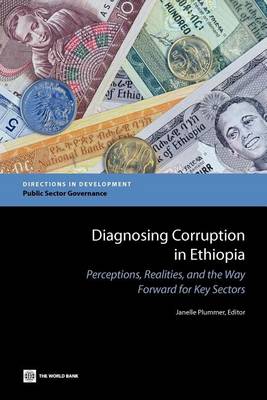For decades, corruption in Ethiopia has only been discussed at the margins. Perhaps because many have not experienced corruption as a significant constraint to their lives and businesses, or perhaps because a culture of circumspection has dampened open dialogue, Ethiopia has neither seen the information flows nor the debate on corruption that most other countries have seen in recent years. This study attempts to fill this information gap. Conducted by the World Bank (with financial support from the UK, the Netherlands and Canada) in conjunction with the Federal Ethics and Anti-Corruption Commission of Ethiopia (FEACC), the study is an independent overview of corruption. It attempts to map the nature of corruption in eight sectors in the country. The studies focuses on three key objectives: (i) to develop sector frameworks that enable mapping of the potential areas of corruption on a sector-by-sector basis; (ii) to map the different forms, and types of corrupt practices in the selected sectors; and (iii) to consider the higher risk areas and identify appropriate sector or cross cutting responses for Government and other stakeholders. The sectors covered are health, education, water, justice, construction, land, telecommunications and mining. In designing the methodologies for undertaking the diagnostics, the sector experts developed approaches that most suited the sector and stakeholder context. However, a number of universal principles have guided the approach. One commonality in the methodology has been the effort to tap into the perceptions and knowledge of all stakeholders, be they politicians, senior government officials, private sector businessmen, civil society advocates or consumers of services. The diagnostics strongly suggest that, in Ethiopia, corrupt practice in the delivery of basic services is comparatively limited and is potentially much lower than other low-income countries. When viewed together, the findings of the study point towards an emerging pattern in sector level corruption, with interesting variations in the levels of corruption across the sectors studied.
- ISBN10 1280783079
- ISBN13 9781280783074
- Publish Date 25 February 2013 (first published 30 July 2012)
- Publish Status Active
- Out of Print 14 May 2014
- Publish Country US
- Imprint World Bank Publications
- Edition New ed.
- Format eBook
- Language English
